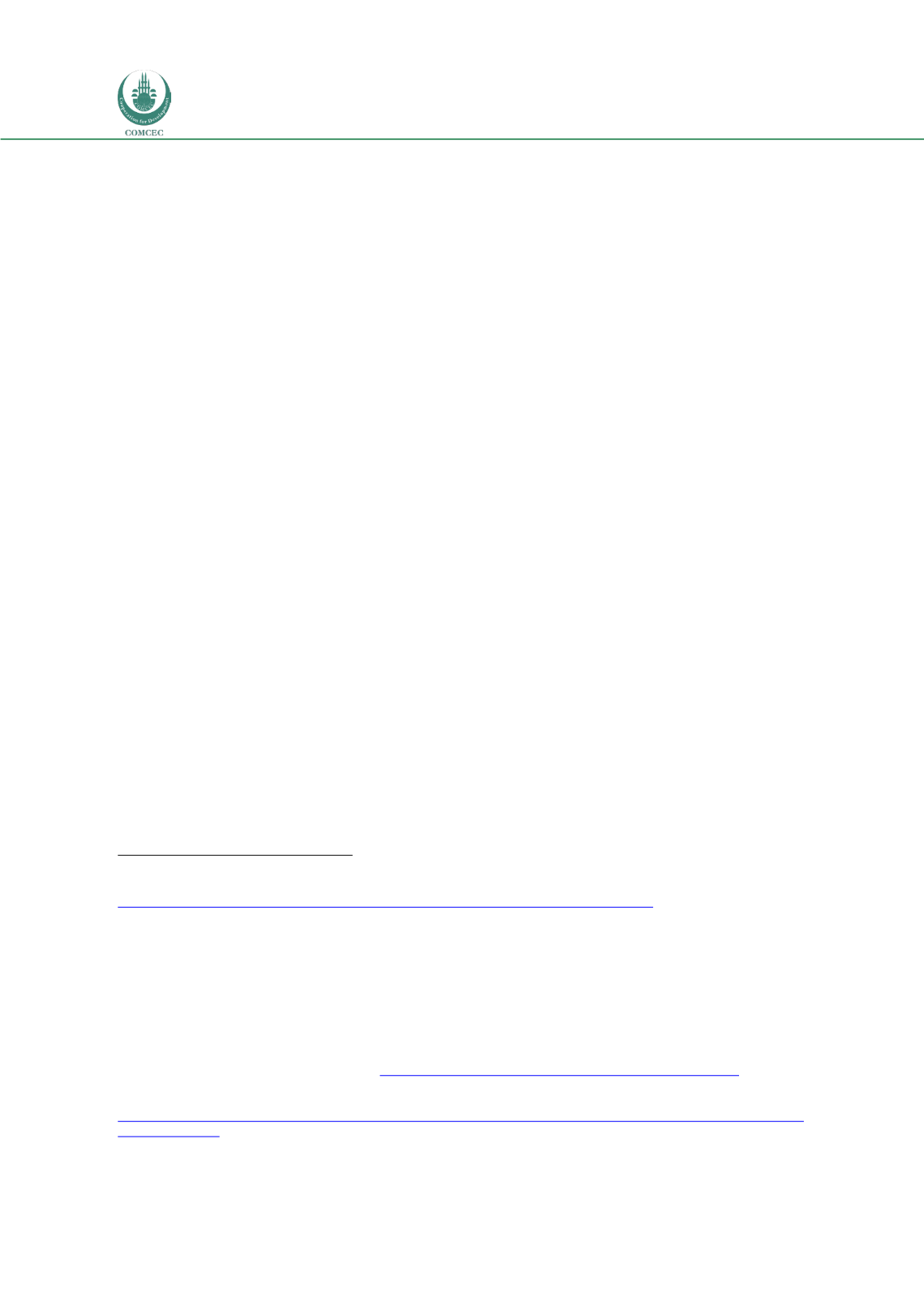

Forced Migration in the OIC Member Countries:
Policy Framework Adopted by Host Countries
116
the country has not yet enacted a comprehensive asylum system.
304
UNHCR has been the sole
agency in charge of registration and status determination for asylum seekers since the 2004
suspension of the Office for Refugees and Stateless Persons (Bureau des Réfugiés et des
Apatrides (BRA)). This arrangement was made official by a cooperation agreement signed
with Morocco in July 2007.
305
UNHCR still performs almost all of the refugee status
determinations in the country while seeking to build Moroccan authorities’ capacity to
eventually oversee the process themselves.
In the current system, UNHCR takes the initial steps of registering asylum seekers and issuing
an “asylum certificate” to individuals it deems to be in need of protection. UNHCR must then
file a separate asylum application for these refugees with the Moroccan government, as only
the government can officially grant refugee status. Refugees who are recognized by UNHCR
are thus transferred to the Ad Hoc Commission on Regularization chaired by the reinstated
BRA under the Ministry of Foreign Affairs. This commission includes representatives from
other relative ministries (such as the Interior, Justice, and Labor ministries) along with the
inter-ministerial delegation for human rights and UNHCR.
306
The commission conducts
reviews (“
auditions
”) for UNHCR-referred refugees, which can be considered an additional
security check but are not in depth. Officially, UNHCR’s decision holds no official bearing for
national authorities.
307
In practice however, all UNHCR referrals who were interviewed
received refugee status from the Moroccan authorities.
308
Upon recognition from the national authorities, refugees receive a government-issued refugee
card valid for one year, with the possibility to renew.
309
This government-issued card comes
with a wide range of rights and services, such as the right to work, access to public
employment and training services, access to adult language education, and the provision of
temporary residence.
310
These services are provided by a mix of public actors and NGOs.
An exception to this process is the population of Syrian refugees, who are currently ineligible
to receive government-issued refugee cards. The government has said that it wants to process
Syrians “separately,” and is still trying to discern the best way to deal with the group as a
whole.
311
For now, the BRA gives Syrians a “receipt” that confirms their registration and
protects them from refoulement. However, this status does not confer to Syrians any
residence permit or access to the legal job market.
312
While Syrian refugees may still access
services provided by UNHCR and its NGO partners, UNHCR has noted that it is better for
refugees to hold the government-issued card as it is more widely recognized.
313
At the
304
U.S. Department of State,
Country Reports on Human Rights Practices for 2015: Morocco
, (Washington, DC: U.S.
Department of State, 2016),
http://www.state.gov/j/drl/rls/hrrpt/humanrightsreport/index.htm?year=2015&dlid=252939305
Human Rights Watch,
Abused and Expelled: Ill Treatment of Sub-Saharan African Migrants in Morocco
(New York: Human
Rights Watch, 2014), 47-48
306
Interview conducted by Natalia Banulescu-Bogdan with UNHCR Morocco, March 2016
307
Human Rights Watch,
Abused and Expelled
, 47-48.
308
Some UNHCR-recognized refugees apparently abscond or move onwards before reaching the interview, therefore
rendering themselves ineligible to receive refugee status. UNHCR, “Morocco Update: Regularisation of Refugees by National
Authorities,” updated December 2015, provided by UNHCR
309
Interview conducted by Natalia Banulescu-Bogdan with UNHCR Morocco, March 2016
310
Interview conducted by Natalia Banulescu-Bogdan with UNHCR Morocco in March 2016; Euro-Mediterranean Human
Rights Network (EMHRN),
Asylum and Migration in Maghreb, Country Fact Sheet: Morocco
, (Copenhagen: Euro-
Mediterranean Human Rights Network, 2012)
, http://www.refworld.org/publisher,EMHRN,,,514d77c22,0.html311
Interviews conducted by Natalia Banulescu-Bogdan, Rabat, March 2016
312
UNHCR, “Morocco Update: Regularisation of Refugees by National Authorities,” updated December 2015,
http://ma.one.un.org/content/dam/unct/morocco/docs/UNHCR/UNHCR%20Morocco_Regularisation%20of%20Refugees _Dec%202015.pdf .313
Interview conducted by Natalia Banulescu-Bogdan, Rabat, March 2016
















